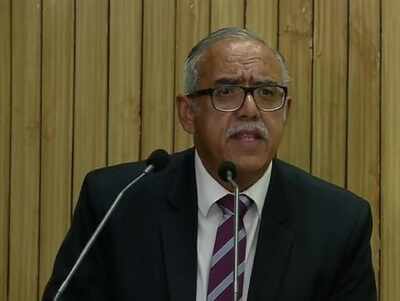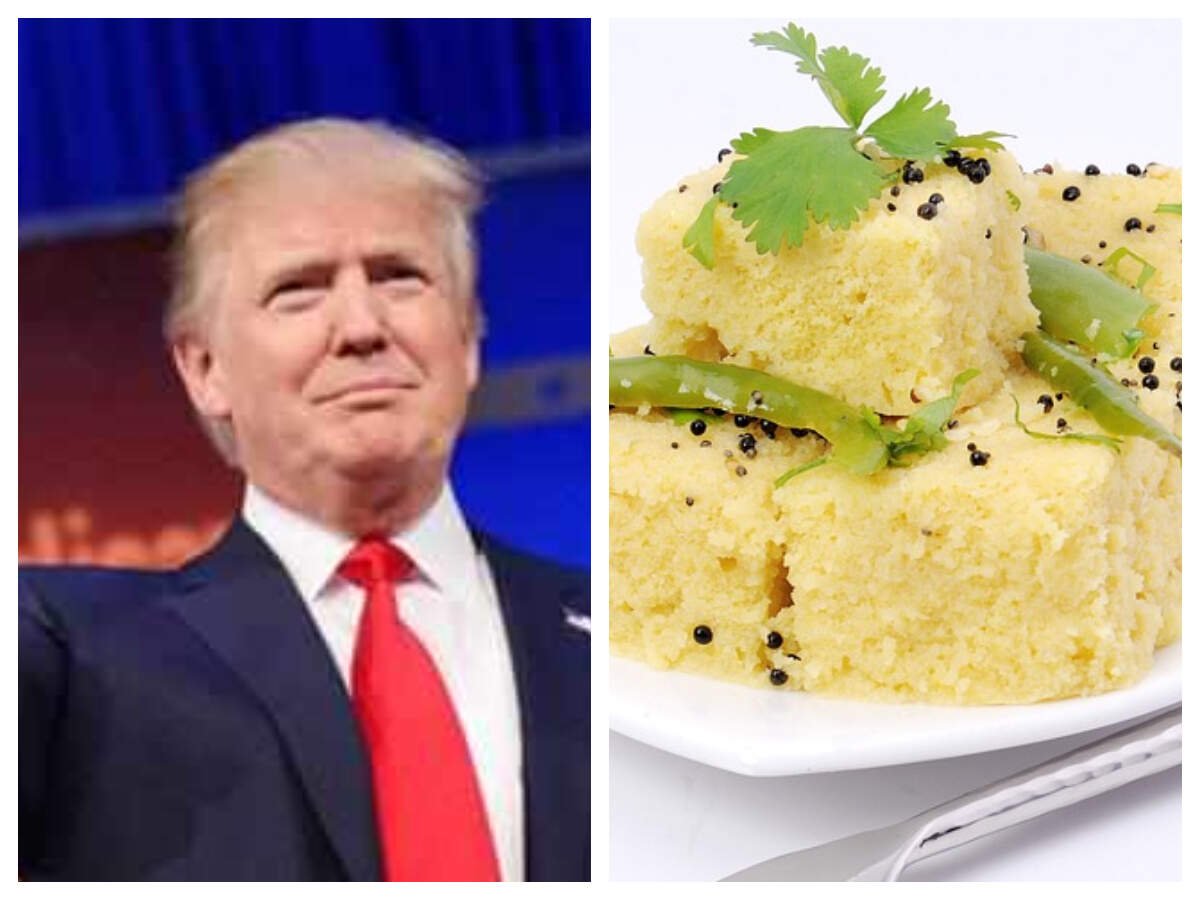Governments not always right, wrong to term people with dissent view as anti-national: SC judge Deepak Gupta

NEW DELHI: Expressing serious concern over a ‘troubling’ trend of branding dissenters as anti-national or traitor, Supreme Court’s Justice Deepak Gupta said in a democracy right to dissent is a precious right and that the government has has no right to stifle a peaceful protest.
Delivering a lecture on ‘Democracy and Dissent’ organised by Supreme Court Bar Association, Justice Deepak Gupta said majoritarianism is anti-thesis to democracy and criticizing the government does not mean one is ‘anti-national’ or is against the country. He said that government may not be always right and that people must have the right and freedom to protest peacefully and express their opinion against the government.
Differentiating government from the country, he said that just because one holds contrary view to government does not mean that one is showing disrespect the country. “Quelling or discouraging dissent” has a chilling effect on democracy, he said.
“Criticism of the executive, judiciary, the bureaucracy or the Armed Forces cannot be termed ‘anti-national’. In case we stifle criticism of the institutions whether it be the legislature, the executive or judiciary or other bodies of the state, we shall become a police state instead of a democracy and this the founding fathers never expected this country to be,” he said while agreeing with Justice D Y Chandrachud’s recent speech on the same lines.
“Dissent is essential in a democracy. If a country has to grow in a holistic manner where not only the economic rights but also the civil rights of the citizen are to be protected, dissent and disagreement have to be permitted, and in fact, should be encouraged. It is only if there is discussion, disagreement and dialogue that we can arrive at better ways to run the country,”he said.
He said that right to dissent, disagree and have another point of view is not only constitutional right but also part of human rights and no one should be deprived of that right in a democracy. Justice Gupta said that recent resolution passed by various Bar association for not appearing for alleged anti-national person is troubling as it is against the rule and ethics.
“Rule of majority is an integral part of democracy but majoritarianism is the antithesis of democracy. In a democracy like ours where we have elections based on the first past the post principle, the Government in most cases does not represent the majority of the population, and often not even the voting electorate. Therefore, when those in power claim that they represent the will of all the people that is more often than not a totally baseless claim. They may be the elected Government voted on the first past the post system by a large number of voters, but it cannot be said that they represent the entire will of the people,”he said
“Even assuming they represent more than 50% of the electorate, can it be said that the remaining 49% of the population has no voice in running the country? Can it be urged that the remaining 49% cannot speak for the next 5 years till next elections are held? Should these 49% be totally ignored if they oppose what is said by the Government? In my view, the answer has to be a big ‘NO’,”Justice Gupta said.
.He said merely because certain groups oppose those in power cannot take away their right to oppose what is proposed by the Government or to oppose any actions of the Government as long as the protest is peaceful. “The Government has no right to stifle or quell protest as long as the protests are peaceful. Protest also means expressing dissent which is part of the legacy left by the father of the country in the form of Civil Disobedience Movement, following the path of Ahimsa,”he said.
“To question, to challenge, to verify, to ask for accountability from the government is the right of every citizen under the Constitution. These rights should never be taken away otherwise we will become an unquestioning moribund society, which will not be able to develop any further,”he said.
“A free country is one where there is freedom of expression and governance by the rule of law. When there is no sharing of power, no rule of law, no accountability, here is abuse, corruption, subjugation and indignation. When the rule of law disappears, we are ruled by the idiosyncrasies and whims of a few,”he said while concluding his speech by reciting Rabindranath Tagore poem ‘Where the mind is without fear and the head is held high’.
Delivering a lecture on ‘Democracy and Dissent’ organised by Supreme Court Bar Association, Justice Deepak Gupta said majoritarianism is anti-thesis to democracy and criticizing the government does not mean one is ‘anti-national’ or is against the country. He said that government may not be always right and that people must have the right and freedom to protest peacefully and express their opinion against the government.
Differentiating government from the country, he said that just because one holds contrary view to government does not mean that one is showing disrespect the country. “Quelling or discouraging dissent” has a chilling effect on democracy, he said.
“Criticism of the executive, judiciary, the bureaucracy or the Armed Forces cannot be termed ‘anti-national’. In case we stifle criticism of the institutions whether it be the legislature, the executive or judiciary or other bodies of the state, we shall become a police state instead of a democracy and this the founding fathers never expected this country to be,” he said while agreeing with Justice D Y Chandrachud’s recent speech on the same lines.
“Dissent is essential in a democracy. If a country has to grow in a holistic manner where not only the economic rights but also the civil rights of the citizen are to be protected, dissent and disagreement have to be permitted, and in fact, should be encouraged. It is only if there is discussion, disagreement and dialogue that we can arrive at better ways to run the country,”he said.
He said that right to dissent, disagree and have another point of view is not only constitutional right but also part of human rights and no one should be deprived of that right in a democracy. Justice Gupta said that recent resolution passed by various Bar association for not appearing for alleged anti-national person is troubling as it is against the rule and ethics.
“Rule of majority is an integral part of democracy but majoritarianism is the antithesis of democracy. In a democracy like ours where we have elections based on the first past the post principle, the Government in most cases does not represent the majority of the population, and often not even the voting electorate. Therefore, when those in power claim that they represent the will of all the people that is more often than not a totally baseless claim. They may be the elected Government voted on the first past the post system by a large number of voters, but it cannot be said that they represent the entire will of the people,”he said
“Even assuming they represent more than 50% of the electorate, can it be said that the remaining 49% of the population has no voice in running the country? Can it be urged that the remaining 49% cannot speak for the next 5 years till next elections are held? Should these 49% be totally ignored if they oppose what is said by the Government? In my view, the answer has to be a big ‘NO’,”Justice Gupta said.
.He said merely because certain groups oppose those in power cannot take away their right to oppose what is proposed by the Government or to oppose any actions of the Government as long as the protest is peaceful. “The Government has no right to stifle or quell protest as long as the protests are peaceful. Protest also means expressing dissent which is part of the legacy left by the father of the country in the form of Civil Disobedience Movement, following the path of Ahimsa,”he said.
“To question, to challenge, to verify, to ask for accountability from the government is the right of every citizen under the Constitution. These rights should never be taken away otherwise we will become an unquestioning moribund society, which will not be able to develop any further,”he said.
“A free country is one where there is freedom of expression and governance by the rule of law. When there is no sharing of power, no rule of law, no accountability, here is abuse, corruption, subjugation and indignation. When the rule of law disappears, we are ruled by the idiosyncrasies and whims of a few,”he said while concluding his speech by reciting Rabindranath Tagore poem ‘Where the mind is without fear and the head is held high’.
Download The Times of India News App for Latest India News.
more from times of india news
Get the app









